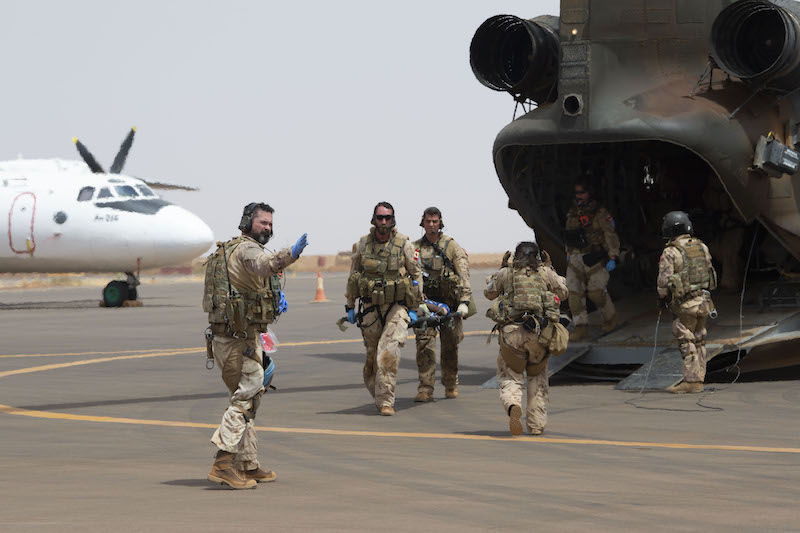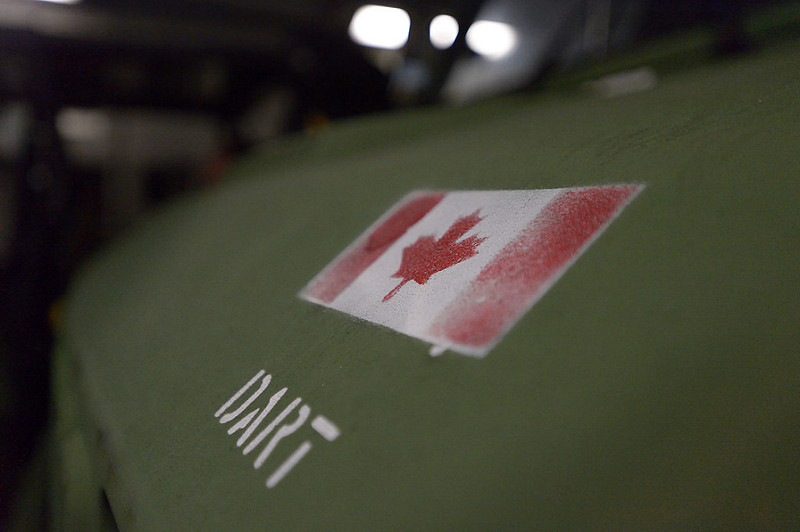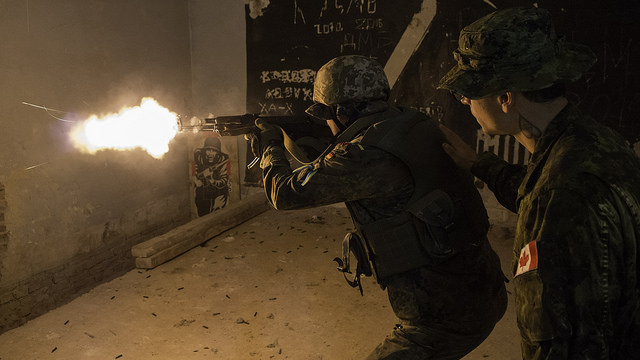News stories about the Ogossagou massacre that killed more than 161 people, the death of Malian soldiers at the hands of jihadi terrorists, as well as the resignation of the Malian Prime Minister Soumeylou Boubèye Maïga hardly paint a picture of progress towards inter-communal peace in that country. In fact, an analysis of MINUSMA (the UN Multidimensional Integrated Stabilization Mission in Mali) attributed the continued instability to the low ranking of ‘protection of civilians’ on the list of priorities for that mission. In other words, it assessed that the situation was so dire that it required substantial changes to the framework of the operation for tangible improvement to materialize. Yet despite UN overtures and the “bad optics” of leaving before replacements have arrived, the Canadian government has been adamant about its objections to extending the mission in the West African country beyond July, citing its previously-set duration for the mission of one year. With less than three months remaining till the end of Operation PRESENCE, Canada’s contribution of peacekeeping efforts under MINUSMA, it is worth reflecting on the significance of this endeavour and attempting to understand the limitations that shaped it and have come to define it.
The announcement of the mission came on the back of the Liberals’ success in the 2015 federal election which was preceded by a campaign that prominently featured the idea of returning Canada to its place as a country heavily involved in peacekeeping. Unfortunately, though, exclusive involvement in this peacekeeping mission falls massively short of campaign promises to commit up to 600 troops to such missions. Moreover, many experts have voiced their concerns about lack of progress in Mali and the need for a stronger commitment in terms of resources, but their pleas have fallen on deaf ears. Does that reflect a downgrading of peacekeeping as an international security priority for this government?
There is evidence that suggests this is the case. A brief look at the Department of National Defence spending plans for 2019-2020 is sufficient to reveal the movement of funding to other operations. The most prominent of such operations are Operation LIMPID, REASSURANCE, and FOUNDATION. Operation LIMPID refers to CAF efforts to counter threats to the country sovereignty in a variety of realms including land, maritime, space and cyber domains; operation REASSURANCE deals with shoring up NATO’s presence in Eastern Europe to assure these countries of its support, while operation FOUNDATION deals with counter-terrorism efforts in the Middle East, North Africa, and South West Asia. So what accounts for this shift?
First, the government has been subjected to a considerable amount of direct and indirect rhetorical pressure from a variety of sides to shift its focus away from peacekeeping in Mali. Since the early days of the mission, Conservatives have criticized it, asserting that it is “a combat mission” that could lead to many casualties. And as the Liberals enter a highly contested election campaign that sees them trailing in the polls, the urge to disengage from a region where military efforts have not yielded substantial progress is understandable. Furthermore, the US government has been pushing its NATO allies, including Canada, to increase their spending in exchange for it’s remaining committed to the alliance. This has not only prompted the government to boost defence spending, but also to show increased commitment to NATO. One way to do so was to renew its contribution to NATO’s enhanced forward presence till 2023; this included an increase in troop numbers. Another was to increase efforts aimed at capacity building in Ukraine (a country that was subjected by the Russian annexation of some of its territory) under operation UNIFIER. Given that US prodding of allies to increase defence spending is likely to be sustained well into the foreseeable future, the government is likely to prioritize maintaining more visibility within the alliance over upholding its internationalist, UN-friendly reputation.
Second, global geopolitical developments have given rise to different priorities that were not deemed as important between the end of the Cold War and the 9/11 terrorist attacks. The emergence of ISIS as a terrorist organization that managed to acquire state-like qualities, eclipsing its other Jihadi counterparts, including Al Qaeda, created the need for Operation IMPACT (part of the global coalition tasked with defeating ISIS), as well as operation FOUNDATION. In light of the damage to state structures and consequential population displacement that resulted from the war in Syria and Iraq, stabilizing that region has become a priority from a global security perspective. Furthermore, developments in the Arctic have also led to a resurgence in the urgency of asserting Canadian sovereignty there. As the ice melts and new commercial opportunities arise, competition for access to resources and trade opportunities is likely to result in further militarization of the region. In fact, many countries with a claim to the Arctic have already boosted their military footprint there. As a consequence, Canada has had to play catch up, and operation LIMPID represents an effort in this regard.
All in all, a confluence of proximal (electoral consideration and alliance politics) as well as distal (the re-emergence of geopolitical and transnational threats) factors have conspired to make peacekeeping a less prominent priority for Canadian international security policy. As a consequence, we are likely to observe changes in how peacekeeping is done, as it is further subsumed under counter-terrorism efforts.
Featured Image: UN peacekeepers from Canada facilitate the transfer of victims injured in the Hombori passenger bus incident to a MINUSMA medical facility in Gao, Mali
Disclaimer: Any views or opinions expressed in articles are solely those of the authors and do not necessarily represent the views of the NATO Association of Canada.




